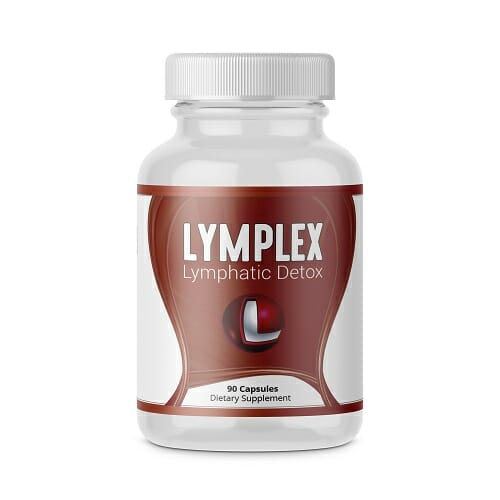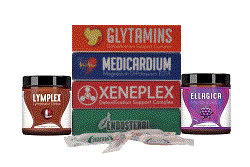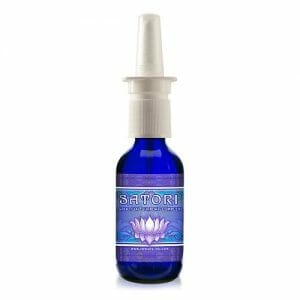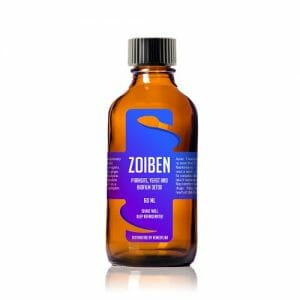Description
Lymplex Lymphatic Detoxification Complex contains 10 herbs to support the cleansing and rejuvenation of the lymphatic system. Includes Echinacea Augustifolia, Echinacea Purpura, Astragalus, Cleavers, Calendula, Red Root, Lobelia, Mullein and Burdock.
Lymphatic Detoxification
When we think of circulation, we commonly think of our blood, the veins and arteries that transport it and the heart that beats to move it though our bodies.
There is however another circulatory system that exists in our bodies that is often overlooked. It is called the lymphatic system. It has its own fluid called lymph fluid, and it’s own vessels called lymphatic vessels and its own pumping system.
Whereas the blood delivers oxygen and nutrients to the cells, the lymph is responsible for removing waste products from the cells as well as dealing with infections.
If your body were a small city, then the lymph would be the garbage men, the sewer system and the police force all in one.
When the lymphatic system is functioning properly, wastes are removed from the cells and infections are dealt with quickly and efficiently, often without you ever knowing that you were even exposed to toxins or an infection.
But when the lymphatic system isn’t working well, wastes accumulate and infections become chronic resulting in fatigue, depression and poor health.
Let’s look first at how the lymphatic system removes wastes.
Lymph fluid bathes all the cells of the body. Think of lymph as a slow moving river washing away the waste products created in the normal functioning of the cells. After cleansing the tissue, the lymph fluid is then transported through a series of tubes called lymphatic vessels, then through specialized glands called lymph nodes and other lymph organs before it finally rejoins the general circulation.
While you cannot see a lymph vessel like you can see the blue veins on the insides of your arms or feel the flow of lymphatic fluid like you can feel the blood move through the arteries of your wrists, you can occasionally feel a swollen lymph node in the neck when you are feeling under the weather. While you may only ever feel a few swollen lymph nodes in your whole life, you have an estimated 100,000 of them throughout your body as well as about 5 1/2 gallons of lymph fluid in your body. This means that you have nearly 3 times as much lymph fluid in your body as blood.
Let’s look more closely at the lymph nodes.
They are found throughout the body, with clusters in the groin, neck, armpits and intestines.
Inside the lymph nodes are special white blood cells called lymphocytes that produce antibodies. Antibodies attach to infectious microorganisms so that rest of the immune system can recognize the infection and destroy it. Without antibodies, our immune system would be blind and wouldn’t know what to attack.
In addition to the 100,000 smaller generalized lymph nodes in the body where the lymphocytes and antibodies are held, there are a few larger lymph organs with special functions.
Tonsils & Bacteria
The first specialized lymph organs we will talk about are your tonsils. When you get a sore throat, what you are feeling are your tonsils.
You are born with three pairs of tonsils but many people listening to this audio no longer have their tonsils. As late as the 1970’s 1/3rd of all operations performed in the USA under General Anesthesia were for the removal of tonsils. It is now recognized that rather than surgically remove swollen tonsils, it is better improve your health. In other words, don’t kill the messenger. Swollen tonsils are simply specialized lymph organs that are working overtime to produce antibodies and clean the throat. Tonsils keep the throat healthy and balance the immune system. This is an important and difficult job. The mouth is the dirtiest and most infected place in the human body. Every tooth has millions of bacterial cells living on it. This is the plaque we brush off every time we brush out teeth.
The bacteria that grow on teeth have been associated with many diseases including heart disease. With every swallow of food we transfer these bacteria down our throat. Now the stomach has acids to kill these bacteria, but the throat must continually deal with this bacterial onslaught and it is the tonsils that come to our defense. While there are some extreme cases where chronically infected tonsils must be surgically removed, modern medicine is now of the opinion that this should avoided if at all possible.
The Spleen & Lymphatic System
The second specialized lymph organ we will talk about is the spleen. It’s job is to filter the blood of foreign substances and the 500 billion worn out red blood cells that naturally die every hour. The spleen also stores red blood cells and releases blood to the body in case of extreme blood loss. Many people believe that it is the liver that filters the blood. Rather than filter the blood, what the liver does is to create substances that combine with toxins so that they become less toxic and more easily removed from the body. The word ‘filter’ is really more appropriately for the spleen than the liver.
Thymus, Appendix and Lymph System
The thymus gland is another organ of the lymph system and it is located behind your breastbone in the center of your chest. The thymus is where T Cells mature and as such it plays an important role in immunity. Unfortunately, by the time most of us reach adulthood, out thymuses shrink and shrivel to a fraction of their original size.
There are many different kinds of T cells and all of them are vitally important to your immune system.
T helper cells regulate the immune system and activate other white blood cells.
Cytotoxic T cells destroy virally infected and cancerous cells.
Memory T cells keep a record of every infection you have ever been exposed to so that if you are exposed to the same or a similar infection, your immune system can recognize that you are under attack very quickly. The faster your immune system can mobilize a response, the less likely you are to have a serious infection. Many times a person will feel a little sick for a few hours, perhaps have a sore throat and feel fatigued, but then later, they feel fine. This is often the case when a person is exposed to an infection that their Memory T cells have on file and thus the immune system is able to knock out the infection before it can become a problem.
Regulatory or suppressor T cells keep a person’s immune system from being too aggressive and attacking their own body. When a person has an auto-immune disease, their Regulatory T cells are not working properly.
Natural killer T cells are specialized attack cells that can recognize certain stealth infections and tumors that other T cells might overlook.
Clearly, the thymus and the T cells that mature in it are a vital part of our immune system.
The appendix is another part of the lymph system. There are on average 500,000 appendixes surgically removed from Americans every year. For a long time doctors thought that the appendix was a useless organ left over from evolution that served no purpose. We now know that to be incorrect. It turns out that the appendix is a reserve for good colonic flora. In the event that an infection, or in modern times antibiotics, destroy the good bacteria in the colon, all is not lost. The good bacteria held in the appendix can come out and repopulate the colon. It’s like a probiotic insurance plan.
In the same way that the tonsils keep the throat healthy, the appendix keeps the colon healthy. Unlike the tonsils however, when the appendix needs to be removed, it is a life-threatening event and surgery must be quickly performed, but one must still ask, what can we do to keep the appendix healthier so that it might not require surgery in the first place?
Now that we know what the lymph system does, the question remains, how does the lymph fluid move through the body? The circulatory system has the heart to push the blood along. The lymphatic system however relies almost entirely on the movement of our muscles to push it around our body. While the lymph does get a little boost from the back pressure of the blood supply and the movement of the diaphragm as we breathe, without exercise and physical activity, the lymphatic flow decreases by 94%.
Working Exercise & Lymphatic System
For thousands of years, humans had to exercise. Before cars, we had to walk. Before gas stoves, we had to chop wood. Before plumbing, we had to carry water. Before grocery stores we had to grow crops. Even if you weren’t in a physically demanding job like being a farmer or a mason or a carpenter, just day to day living made you move about. Nowadays, many people spend more than half their lives without getting any exercise at all. We already spend 8 hours a day sleeping in a bed. If you work from a desk, add another 8 hours of inactivity. Add to that the amount of time that we spend watching TV and in our daily commute and it becomes apparent, the average American now spends the vast majority of his or her time in a state of physical inactivity.
While being relieved of the backbreaking manual labor that made up much of pre-industrial existence has certainly been a blessing in many ways, it has also had a negative effect on our bodies. We are meant to move, and without movement, the fluids of our bodies become stagnant, specifically our lymph fluids.
Exercise, Children and Lymplex
This is one of the many reasons that exercise is important for our health. When you see little kids rocking their legs in a chair, this is because they instinctively want to move their lymph. Unfortunately, this behavior is not encouraged in most schools. If you have a sedentary desk job, get up every few minutes and move about. It’s good for you. Try to get at least 5 minutes of movement every hour of your waking day.
There is another way in which we can support our lymphatic system and that is with bitter foods. If you taste nearly any medicinal herb, you’ll notice that it’s bitter. Bitter flavors stimulate the immune system in the same way sweet flavors suppress it.
Fruits and vegetables 5,000 years ago were much bitterer and much less sweet than they are today. An example of this is a crabapple. Thousands of years ago, all apples tasted like crabapples. If you’ve never had one, they are small, bitter apples that you’d rather spit out than swallow. Over thousands of years, farmers picked the biggest and sweetest crab-apples to grow and in this manner bred what are now known as the modern apple. While these sweet apples taste good, they have been stripped of their medicinal lymphatic stimulating qualities and their excessive sweetness encourages infections by increasing out blood sugar levels as well as directly suppressing our immune systems.
Adding bitter herbs back into our diet with supplementation is one way that you can support your lymphatic system.
Summary
Well, now you know all about the lymph system. In order to help this vitally important and overworked system, we’ve developed Lymplex. Lymplex is a nutritional supplement that contains 10 organic and wildcrafted herbal extracts specifically chosen for their lymphatic cleansing and rejuvenating properties. These herbs extracts tighten the lymphatic junctions, thin the lymphatic fluid, and support proper lymph flow and immune function. Lymplex contains extracts of echinacea, ginger, astragalus, cleavers, calendula, red root, lobelia, mullein and burdock. You can take Lymplex as a daily supplement or anytime you feel sluggish, have an infection or are doing a general cleanse.
When you take Lymplex you may notice physical sensations in the lymph nodes around your body. These are signs that the sluggish nodes are getting a good cleanse. It is also possible for a person to feel tired or a little under the weather the first time they take Lymplex. This is natural and is to be expected as years of accumulated debris are now being flushed out of the body. If you want to keep your body healthy, you need to keep your lymphatic system healthy and if you want to keep your lymphatic system healthy, get some exercise and consider making lymplex part of your health program.
Warnings:
- If pregnant or lactating, consult your physician before taking this product
- Keep out of reach of children
- Do not exceed recommended dose
* These statements have not been evaluated by the Food and Drug Administration. This Product is not intended to diagnose, treat, cure or prevent any disease.







Reviews
There are no reviews yet.